Caring for a new addition to your family brings myriad decisions, and one of the most important, yet often overlooked, is the choice of diapers.
In today’s environmentally conscious era, more and more parents are looking to make sustainable choices, even when it comes to the most useful of needs.
The debate on bamboo diapers versus disposable overnight diapers is not just about comfort and convenience; it’s about the long-term footprint we leave on the planet for the little ones to inherit. But in this “green” exchange, how do bamboo diapers stack up against their widely-used disposable counterparts when it comes to comfort, chemical composition, environmental impact, cost-effectiveness, and nighttime use? Let’s dive into the details and explore the pros and cons of each option.
Overnight Diapers
When it comes to comfort, both bamboo diapers and disposable overnight diapers have their advantages.
Bamboo diapers are made from a natural material that is soft to the touch, making them gentle on a baby’s delicate skin. Aside from that, they let more air in than regular throwaway diapers, which lowers the risk of diaper rash.
However, disposable overnight diapers often have added features such as extra padding or moisture-wicking capabilities that make them more comfortable for babies who sleep longer stretches at night.
In terms of chemicals, bamboo diapers may seem like the obvious choice since they are made from a renewable resource without harsh chemicals.
However, many disposable overnight diapers now contain fewer harmful chemicals than in the past due to increased consumer demand for safer products. Additionally, disposable diapers have the added convenience of being easy to dispose of and not requiring any additional laundering.
However, cloth diapers are better for the earth because they can be used more than once before they need to be thrown away. Many parents choose them because they are trendy and come in a lot of cute colors and patterns. You can also choose what materials touch your baby’s skin more easily with cloth diapers, which is helpful for parents whose babies have sensitive skin or allergens.
Comfort And Fit
Making sure your baby is relaxed is an important part of diapering. This is where we explain how both throwaway diapers and bamboo diapers meet this important need.
A lot of people say that disposable diapers fit and feel great. Their elastic waistbands and leg cuffs make them fit snugly and securely, so there are no leaks or mistakes. Additionally, the soft inside of throwaway diapers helps keep your baby’s skin dry and comfortable.
Bamboo diapers, on the other hand, offer a natural and breathable option for your baby’s bottom. Bamboo fibers are known for their superior absorbency, making them perfect for long wear times. They also have a luxurious softness that keeps your baby feeling comfortable all day long.
Leak Protection
We know how important it is to find diapers that won’t leak because we are parents. Disposable Overnight diapers often come with special features such as extra-absorbent layers or reinforced leg cuffs to prevent leaks. However, bamboo diapers offer the same level of leak protection without the use of harsh chemicals or synthetic materials.
Disposable Diapers
- Elastic Waistbands: Many leading disposable brands now include elastic waistbands for a more secure and less restrictive fit compared to older styles without them.
- Flexible Leg Cuffs: To prevent leaks and provide a snug fit, disposable diapers often include elasticated leg cuffs, which offer greater flexibility and movement for your baby.
- Soft Materials: The constantly evolving technology behind disposable diapers has resulted in softer, breathable fabrics that are gentler on the baby’s skin.
Bamboo Diapers
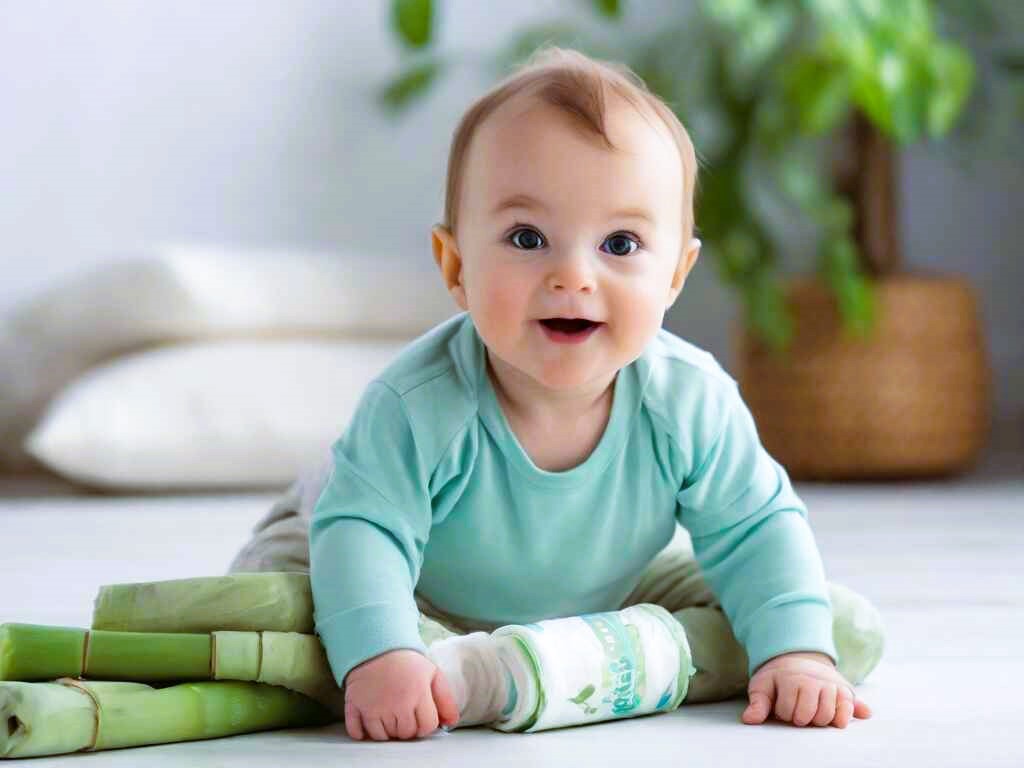
- Natural Fibers: Bamboo diapers are constructed from natural bamboo fibers, which are inherently softer and smoother than those of conventional materials.
- Chemical-Free: Often, bamboo diapers are chemical-free and hypoallergenic, further enhancing their comfort and significantly reducing the risk of skin irritation.
- High Absorbency: Despite being more eco-friendly, bamboo diapers boast superior absorbency, keeping your baby drier for longer periods.
Chemical Composition
The health and well-being of your baby are paramount, and understanding the chemical makeup of diapers is essential. Bamboo diapers are made using mostly natural and organic materials, with little to no chemicals or toxins.
This means the risk of your baby being exposed to potentially harmful substances is significantly reduced. Bamboo diapers are also biodegradable and break down faster than regular throwaway diapers. This makes them a better choice for the environment.
Softness and Comfort
Bamboo diapers are the softest of all the materials that are usually used to make diapers. This makes them very easy for babies to wear, which lowers the risk of diaper rash and other problems. It is also naturally antibacterial and hypoallergenic, so it is a good choice for kids with sensitive skin.
Bamboo Diapers

- Natural, Eco-Friendly Materials: Bamboo diapers are lauded for using plant-based materials that are not only gentle on the skin but also on the environment.
- Hypoallergenic: Bamboo’s natural properties help to minimize the risk of allergic reactions, making them ideal for sensitive skin.
Disposable Diapers
- Superabsorbent Polymers (SAP): The incorporation of SAP has revolutionized absorbency in disposable diapers, but concerns about their long-term impact on health persist.
- Fragrances and Dyes: While these additives can make the diaper experience more pleasant, they may also cause skin irritation in some babies.
- Other Chemicals: The production of disposable diapers often involves the use of various chemicals, such as dioxins and phthalates, which some studies suggest could have troubling implications.
Environmental Impact
For many parents, the desire to reduce their carbon footprint guides their decision-making process. Disposable diapers can take up to 500 years to decompose in landfills, and the production process consumes large amounts of water and energy. However, modern cloth diapering options have significantly improved in terms of environmental impact, with many brands using sustainable materials and implementing recycling programs.
In the end, the choice between disposable and cloth diapers will come down to personal taste and how you live your life. For busy parents who value convenience and are concerned about potential health risks, disposable overnight diapers may be a better
Disposable Diapers
- Landfill Concerns: Disposable diapers, with their non-biodegradable components, contribute to the mounting waste problem, taking hundreds of years to decompose. It is thought that more than 20 billion diapers are thrown away every year in the US alone.
- allergies and respiratory problems. These chemicals can also be harmful to the environment when they leach into water sources.
Reusable Option: Cloth diapers are made from reusable materials such as cotton or bamboo, which significantly reduce the amount of waste sent to
- Resource Intensive: Manufacturing disposable overnight diapers requires significant water and energy, which adds to their environmental cost. On the other hand, cloth diapers can be reused multiple times, reducing the overall environmental impact.
- Cost-Effective: While disposable diapers may seem cheaper upfront, in the long run, cloth diapers are a more cost-effective option. Using cloth diapers can save families thousands of dollars over a child’s diaper-wearing years.
- Healthier Option: Cloth diapers are free from chemicals and additives found in disposable diapers, making them a healthier option for babies’ delicate skin. This also reduces the risk of allergies and respiratory problems caused by prolonged use of disposable diapers.
- Modern Options: Today, there are many modern options for cloth diapers, such as all-in-one designs that are easy to use and clean. There are also diaper services available that
Bamboo Diapers
- Biodegradable: Bamboo diapers, being biodegradable, can return to the earth much quicker and without harmful byproducts. This not only benefits the environment but also reduces waste in landfills.
- Cost-Effective: While bamboo overnight diapers may have a slightly higher upfront cost, they can save families money in the long run due to their biodegradable nature. They also tend to last longer than traditional cloth diapers, reducing the need for frequent replacements.
- Soft and Absorbent: Bamboo fibers are known for being soft and highly absorbent, making them perfect for use as diaper material. They are gentle on babies’ skin and help keep them dry and comfortable.
- Sustainable: Bamboo is a highly sustainable material, as it grows quickly without the need for pesticides or fertilizers. This makes bamboo diapers an environmentally friendly option for families who want to reduce their carbon footprint.
- Renewable Resource: Bamboo is one of the fastest-growing plants and does not require pesticides or herbicides to thrive, contributing to a sustainable diaper option.
- Let’s compare the impact:
| Disposable Diapers | Bamboo Diapers | |
| Decomposition | Up to 500 years | Approx. 75 days |
| Annual Landfill Contribution | High | Low |
| Chemicals Used | More | Less |
| Resource Consumption | High | Low |
Cost-Effectiveness
When it comes to the financial implications, both immediate and long-term costs need consideration.
Disposable Diapers
- Time: The convenience of disposables saves parents time, as they can quickly change out a soiled diaper. This can be especially helpful for parents of multiple children or those on the go.
- Estimated Cost: Over the standard period of diaper use, disposable diapers may have a lower initial cost compared to bamboo alternatives. However, this may vary depending on the brand and quantity purchased.
| Time | Estimated Cost |
| 1 Month | $6-12 |
| 1 Year | $73-146 |
Bamboo Diapers
- Time: Larger upfront time investments are necessary for washing and maintaining cloth-like bamboo overnight diapers. This includes washing and drying time, as well as the potential for additional maintenance such as removing stains or repairing worn-out diapers.
- Estimated Cost: While the individual cost per diaper may be higher, the long-term cost can be significantly lower when considering that one bamboo diaper can replace thousands of disposables. Additionally, some brands offer subscription services for constant replenishment at a lower cost.
Availability And Convenience
The practicality of diaper choices is often dictated by availability and the lifestyle of the parent.
Disposable Diapers
- Availability: Widely available in stores and online, disposable diapers are a convenient choice for most parents.
- Convenience: They offer hassle-free use with no cleaning required, making them a popular choice for busy families.
- Relative Cost: The relative cost of disposable diapers includes the purchase price and the value placed upon saved time and convenience.
Bamboo Diapers
- Availability: While not as common, bamboo diapers are increasingly accessible in retail and online markets.
- Convenience: The maintenance of cloth-like diapers can add an extra step to the routine, but modern options often include convenient hygienic solutions.
- Relative Cost: The value of the time and effort involved in using bamboo diapers must be considered against their potential long-term savings.
- Total starting cost may range from $90 to $240
| Time Span | Estimated Cost |
| 1 Month | $90-240 (initial investment) |
| 2-3 Years | Same as initial investment |
Nighttime Use
Sleep is precious, and a good night’s rest for both baby and parent is often decided by the quality of the diaper used during those crucial, long hours.
Disposable Diapers
- Features: Many disposable diapers offer night-specific versions with extra absorbency and leak protection. They also often come with wetness indicators to help caregivers know when a diaper change is needed.
- Convenience: Disposable diapers are undeniably convenient, requiring no additional washing or maintenance. They are also widely available in various sizes and brands.
However, there are some drawbacks to using disposable overnight diapers. The most obvious one being the negative impact on the environment. The majority of disposable diapers end up in landfills where they can take hundreds of years to decompose.
Another concern is the chemicals used in disposable diapers. These chemicals, such as dioxins and sodium polyacrylate, have been linked to health issues and have raised concerns among parents.
- Benefits: The stay-dry layers and advanced designs mean that these diapers can often last through the night without issue. They are also the best choice for parents who move a lot or are always on the go.
- The bad things about disposable overnight diapers are that they can be pricey and make a lot of trash. Babies and the world might both be at risk of getting sick from the chemicals that were used.
Overall, while disposable diapers offer convenience and ease for parents, they come at a cost to the environment and potential risks to our health. Parents need to weigh these factors and make an informed decision on what type of diaper is best for their family. Consider looking into more eco-friendly options such as biodegradable or cloth diapers, which may require more effort but have less impact on the environment. Ultimately, it’s about finding a balance between convenience and sustainability when it comes to choosing the right
Bamboo Diapers
- Features: Some bamboo diapers are specifically designed for overnight use, boasting impressive absorbency capacities.
- Benefits: With their chemical-free and breathable materials, bamboo diapers can also reduce the likelihood of diaper rashes, ensuring a comfortable night for your little one.
| Diaper Type | Availability | Convenience | Relative Cost |
| Disposable Diapers | High | High | Varies |
| Bamboo Diapers | Medium | Medium | Higher upfront |
| Cloth Diapers | Low | Low | Lower long-term |
Frequently Asked Questions Of Bamboo Vs. Disposable Overnight Diapers
To provide a comprehensive comparison, addressing common questions helps in clarifying the narrative for parents.
What Are The Benefits Of Bamboo Diapers?
Bamboo diapers offer natural softness, superior breathability, and a sustainable profile. They are often free of chemicals, fragrances, and dyes, reducing the risk of skin irritation and other potential health concerns. Their eco-friendly disposition can also set a positive example for children and contribute to a healthier planet.
How Long Do Disposable Diapers Decompose?
Standard disposable diapers can take upwards of 500 years to decompose, contributing to long-term environmental damage. On the other hand, bamboo diapers can take anywhere from 75 to 150 days to decompose, making them a much more environmentally friendly option.
Are Bamboo Diapers More Absorbent?
Despite popular belief, bamboo diapers can be equally as absorbent, if not more so, than disposable alternatives, thanks to the nature of bamboo fibers. Bamboo is naturally porous, allowing for better absorption and wicking away of moisture. This makes bamboo diapers a great choice for babies with sensitive skin or those who need extra protection against leaks.
Can Bamboo Diapers Reduce Diaper Rash?
The natural properties of bamboo, such as its antimicrobial and antifungal components, can help reduce the incidence and severity of diaper rash. These diapers are also softer and gentler on the skin, reducing irritation and chafing. Additionally, bamboo is a hypoallergenic material, making it less likely to cause allergic reactions compared to other diaper materials.
Do Disposable Diapers Contain Chemicals?
Yes, disposable diapers generally contain a mix of chemicals, including fragrances, dyes, and superabsorbent polymers that may be a concern for some parents. These chemicals can potentially irritate a baby’s sensitive skin and cause rashes. However, many bamboo diapers are free from these harmful chemicals, providing a safer option for babies with sensitive skin.
Is Switching To Bamboo Diapers Cost-Effective?
Even though they may cost more at first, washable bamboo diapers can save you a lot of money in the long run, making them a good choice in the long run. Also, a lot of bamboo diapers are made to be flexible so they can grow with your baby, so you don’t have to buy new sizes all the time. Switching to bamboo diapers may cost a little more at first, but it will save parents money in the long run.
Conclusion
The choice between bamboo and disposable diapers is multi-faceted, with considerations ranging from the health of your child to the welfare of the planet. Disposable diapers offer convenience and immediate cost savings, while bamboo diapers present a more sustainable and often healthier option for babies. For parents who can invest the additional time and effort, bamboo diapers can be a compelling choice, providing not only a greener solution but also potentially happier, more comfortable babies.
Ultimately, when it comes to the eco-friendly battle in the nursery, there’s no one-size-fits-all answer. Each family must weigh their values, priorities, and lifestyle to make the best decision for their unique circumstances. Whether you choose bamboo or disposable, the act of considering these factors itself is a step towards a more conscious and caring approach to our planet and our children.



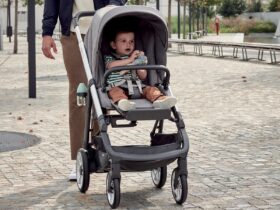




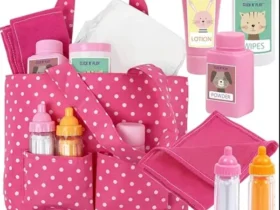

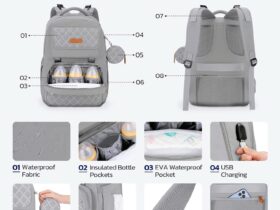


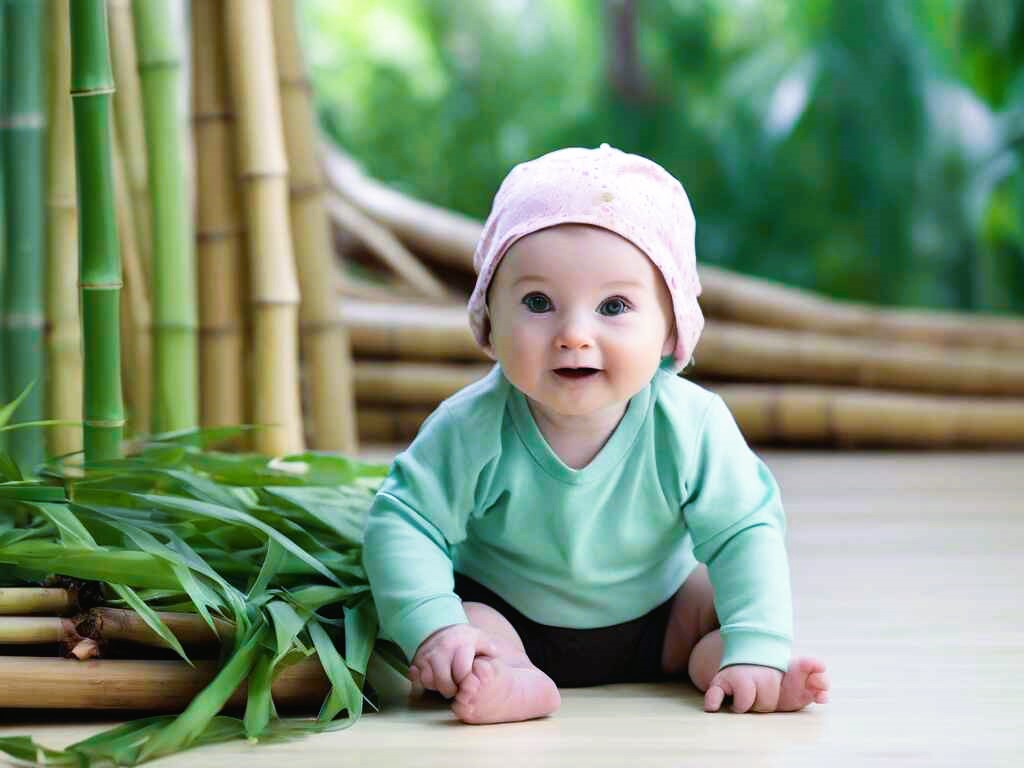
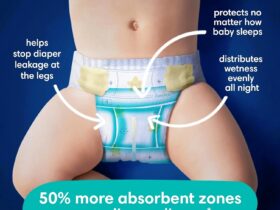

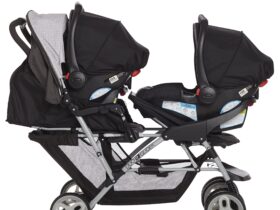






Leave a Review